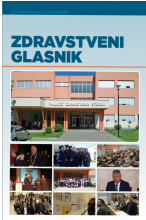Addictive Behavior in Immigrant Psychiatric Inpatients: the Immigrant Paradox Failure
Ključne riječi:
Immigrants,, Substance Use Disorders,, Psychiatric WardSažetak
INTRODUCTION: In the last years migration has become a major political and social concern in West-Europe. Some
researchesindicate that immigrants are more prone to certain psychiatric disorders, while other show the “immigrant
paradox”.Data about immigrants’ admission to acute psychiatry settings and substances and alcohol use-related conside
rations are still controversial.
AIMS: To evaluate data about immigrants’ admission to the acute Italian Psychiatry Ward of Hospital of Novara, focusing
on substances and alcohol.
METHODS: The study was performed from January to December 2017, without any exclusion criteria. The final database
contains detailed information including diagnostic treatment-related and sociodemographic characteristics. The sample
was divided into two subgroups: immigrants with (SAU) or without a history of substances or alcohol abuse (N-SAA).
Each patient was assessed with the Health of the Nation Outcome Scales and the Clinical Global Impression.
RESULTS: Of the total of 71 immigrants (mean age 37.95 years), 34 were female.49.3% of them with SAU. Specifically,
immigrants with SAU seemed to have a shorter hospital stayand to obtain higher scores on the subscale “behavior” and
“social” of HONOS(p<0.05). Differences in the use of antidepressants and atypical antipsychotics were showed.
Conclusion: From our study resulted that immigrants are more prone to develop addictive behavior, maybe due to stress
related to the migration, without information on the causality of relationship.This issue needs to be expanded in order to
possibly align psychiatric services to the needs of immigrant patients.















